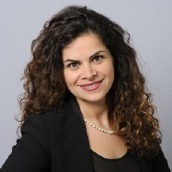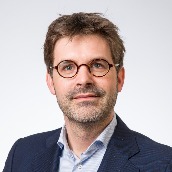Recap: Open Science Workshop during Grants Week

The transition to open science is a priority for research funders. In a workshop on open science during the digital edition of Grants Week 2021 (20-23 April), two speakers informed participants about a new open access publishing platform and the commitment of the Dutch Research Council (NWO) to open science.
Open Research Europe
The first speaker of the afternoon, UG professor Shirin Faraji (Faculty of Science and Engineering), recently joined the scientific advisory board of the new open access publishing platform Open Research Europe (ORE) – an initiative by the European Commission. ORE publishes research that stems from Horizon 2020 and (in the future) Horizon Europe funding across all subject areas. The platform helps beneficiaries of Horizon-projects to comply with the open access requirements of their funding.

What’s special about ORE is its open peer review publishing model: pre-prints of manuscripts are made available on the platform within 10 days from submission, following a pre-publication check. During peer review, reviewers' comments (and their identities) are made publicly available alongside revised versions of articles with their own DOI and an indication of the approval status. All versions of an ORE article and its peer reviews are published under a CC BY licence; underlying data is instead made available, whenever possible, under the terms of a Creative Commons Public Domain Dedication (CC0).
Open peer review
Faraji highlighted a number of interesting features of the platform:
- ORE is a diamond open access initiative, which means that authors do not need to pay an article processing charge (APC). ORE wants to establish more transparency around publishing costs and intends to explore sustainable business models for open access publishing.
- ORE facilitates a transparent peer review process. Upon submission, authors are asked to suggest qualified expert reviewers with no relation to the author. The names and affiliations of the reviewers, their reports and responses from the author are all published openly alongside the different versions of the article.
- ORE is author-driven, which allows research to be published without any delay. There is no editor as ‘gatekeeper’ who decides whether an article is accepted or not. Instead, the author decides what and when to publish and oversees the peer review process. The open publication model assures quality and scientific merit.
- To encourage constructive debate about its publications, ORE allows authors, reviewers but also readers to post comments about articles or peer review reports.
Although ORE has only been accepting submissions since November 2020, the response from the research community so far has been overwhelming. Already 30 articles have been accepted and many more are in the pipeline. Faraji stressed that publication with ORE will not be compulsory for Horizon-beneficiaries. It is just one more high-quality and reliable publishing venue, offering a possible alternative to publication with commercial journals.
Open science at NWO

The second speaker in this workshop was Hans de Jonge, Head of Open Science policies at NWO. De Jonge discussed the various ways in which NWO actively supports the transition to open science.
NWO has a long track record when it comes to supporting open access initiatives and recently brought its open access policy in line with the requirements of Plan S. NWO’s open access policy also applies to books and the council recently launched a funding instrument to cover the publication costs of open access books.
De Jonge showcased a significant increase in uptake of open access: while in 2015 19% of the publications funded by NWO were published open access, this had increased to more than 85% in 2020. De Jonge attributes this to the many open access deals that the Association of Universities in the Netherlands (VSNU) has made with publishers. These deals allow UG- and UMCG-authors to publish their articles open access in thousands of journals for free (100% discount) or with significant discounts on APCs.
Since 2016, NWO has asked researchers to also make their data openly available for reuse as widely and as early as possible . NWO recognizes, however, that it is not always possible to open up data, because of privacy, public safety, property rights or commercial interests. Hence, the guiding principle for NWO is ‘as open as possible and as closed as necessary’.
Towards a different research culture
De Jonge stressed that top-down policies alone will not be enough to make the transition to open science a success. A culture change is needed, which also entails giving credit and recognition to researchers who put open science into practice.
To this end, in 2019 NWO co-published the position paper Room for Everyone’s Talent and also signed the San Francisco Declaration on Research Assessment (DORA) which aims to change the way in which scientific research is evaluated. As a consequence, NWO is no longer evaluating researchers based on journal-level metrics, like the Journal Impact Factor and the h-index, but instead strives to assess research on its own merits.
Open science infrastructures
The transition to open science also requires investments in open scholarly infrastructures. NWO supports several initiatives for new infrastructures. De Jonge is especially proud of NWO’s support for the Open Journals platform, which is a platform that helps Dutch-based independent journals to make the transition to open access.
In an effort to strengthen data stewardship in the Netherlands, NWO is also funding local and domain-specific (national) Digital Competence Centers. DCCs will help researchers with all their questions related to research data and software. The University of Groningen received a start-up grant for setting up the Groningen Digital Competence Center (GDCC).
Hans de Jonge’s presentation can be found here.
Useful links:
NWO’s Open Science Fund for researchers who want to test, develop or implement innovative ways of making research open, accessible, transparent and reusable.


